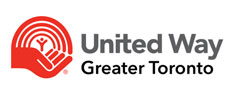Does Your Child Need Speech Therapy?


Children all have their own unique skills and personalities and as they grow, they reach key milestones at their own pace. Although there is a general pattern kids follow while developing language, the range of what’s considered normal is so wide. If you’re worried about your child’s speech and language skills, it can be hard to know when it’s time to get help.
Suzanne Ranson, Speech and Language Pathologist (SLP) at VHA Home HealthCare (VHA) explains that, “There is a risk waiting for things to resolve themselves. The earlier the invention, the better the outcome.” To help you decide whether your child needs to see a speech pathologist, here are some signs you should look for at each stage of development.
Developmental Red Flags:
- By 12 months, your infant does not babble, have any words, understand or use gestures.
- By 18 months, they struggle imitating sounds, do not have at least 20 words or aren’t combining words (e.g. “my truck” “more apple”).
- By two years, your toddler only uses words to express need, doesn’t use at least 100 words, mostly communicates through sounds and pointing or can’t follow simple directions.
- By two-and-a-half, they drop final consonants or syllables, you and other caregivers can’t understand at least half (50 per cent) of what they say or they have a raspy or nasal voice.
- By three years, family and friends can’t understand most (75 per cent) of what your child says, they aren’t combining three or more words or incorrectly pronounce p, b, m, t, d, n, h, w, k, g, or ng speech sounds.
- By four years, they don’t use complete sentences with adult-type grammar, they struggle with f, y, s, z, ch, j, sh or l sounds or strangers find it hard to understand them.
“The key here is to see that your child’s speech is constantly changing and improving over time. Even if it’s at their own pace,” says Suzanne.
Other Signs of a Speech or Language Issue:
- People think your child is younger than they are because of their speech.
- Your child consistently stutters (short periods of stuttering are a normal part of language development).
- Your child shows frustration or tension while trying to speak.
- Your child is being teased by other kids.
- Social interactions and play skills are unusual or inappropriate.
“Parents often instinctively know if their child has a speech or language problem and that’s a reliable sign you should dig deeper,” notes Suzanne. If you are concerned about your child’s development, start with a visit to the pediatrician to rule out hearing problems.
Once you’ve done that, it’s a good time to book an assessment with a speech and language pathologist. Catching speech and language delays early will have less impact on your child’s academic and social well-being. For more information on how an SLP can help your child, please contact VHA Home HealthCare today.



